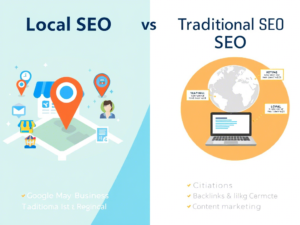Website maintenance
Introduction
In the digital age, your website is your virtual storefront, your 24/7 salesperson, and your brand ambassador. Yet, many businesses invest in creating a beautiful website but fail to recognize the ongoing care it needs to thrive. Neglecting website maintenance is like building a luxurious car and then never changing the oil – eventually, it breaks down.

This introduction delves into the hidden costs that lurk beneath the surface when you overlook website upkeep. Beyond the obvious broken links and outdated information, neglecting your site can lead to security breaches, lost revenue, plummeting search engine rankings, and a damaged reputation. In this exploration, we’ll uncover how a proactive approach to website maintenance can save you money, protect your brand, and drive growth for your business.
Table of Contents
The Hidden Costs of Neglecting Website Maintenance:
Website Maintenance: A Shield Against Hidden Costs and Security Breaches
Maintaining your business website isn’t just about aesthetics; it’s a fundamental aspect of protecting your brand and your customers. Neglecting website upkeep can lead to a cascade of problems, ranging from hidden costs to catastrophic data breaches. Let’s explore these risks in detail:
Website Security: The Cornerstone of Your Online Presence
- Outdated Software: An Open Invitation to Cyberattacks
Outdated software, plugins, and content management systems (CMS) are riddled with vulnerabilities. These vulnerabilities are easily exploited by cybercriminals seeking to inject malware, steal sensitive customer data, or even hijack your entire website. Regular updates are essential to patch these security holes.
- Data Theft: A Nightmare for Your Business and Customers
A security breach resulting in data theft can have devastating consequences. Your customers’ personal and financial information can be exposed, leading to identity theft, fraud, and a significant loss of trust in your brand. Moreover, your business could face legal repercussions and financial penalties.
- Malware Infections: Crippling Your Website Performance
Malware can infect your website through various means, including outdated software, malicious links, and compromised user accounts. Once infiltrated, malware can slow down your website, display unwanted ads, redirect visitors to harmful sites, and even steal sensitive data. Regular website care and security scans are crucial in detecting and removing malware before it causes irreparable damage.
Website Performance: The Impact of Neglect
- Slow Loading Times: Frustrating Visitors and Hurting SEO
A neglected website often suffers from slow loading times due to outdated code, bloated databases, and unoptimized images. Slow-loading websites frustrate visitors, leading to high bounce rates and lost conversions. Additionally, search engines like Google penalize slow websites in their rankings, impacting your organic traffic and overall online visibility.
- Broken Links and Functionality: A Negative User Experience
Broken links, outdated content, and malfunctioning features create a negative user experience. Visitors are less likely to engage with a website that appears neglected and unprofessional. This can result in lost sales, diminished brand reputation, and increased customer churn.
- Hidden Costs of Website Neglect: Beyond Financial Losses
The costs of website neglect extend far beyond financial losses. The damage to your brand reputation, customer trust, and employee morale can be difficult to quantify but incredibly impactful. Additionally, the resources required to recover from a security breach or a major website outage can be substantial.
Proactive Website Care: Your Best Defense
Regular website maintenance is your best defense against the security risks and hidden costs associated with website neglect. Implementing a comprehensive website care plan that includes regular updates, security scans, performance optimization, and content updates can significantly reduce your risk of experiencing a security breach, improve your website’s performance, and enhance the user experience for your visitors.
Website Upkeep: The Foundation of Online Success
Maintaining your website isn’t just a technical chore; it’s a strategic investment in your online presence. Neglecting website maintenance can lead to a domino effect of negative consequences, impacting your business website’s visibility, user experience, and ultimately, your bottom line.
The Perils of Website Neglect
- Poor Website Performance: Slow loading times are a major turn-off for users. In today’s fast-paced digital world, people expect websites to load quickly. Delays lead to frustration, higher bounce rates (people leaving your site quickly), and missed opportunities. Google’s algorithms also favor websites with fast loading speeds, affecting your search engine ranking.
- Security Vulnerabilities: Outdated software, plugins, and themes can create security loopholes, making your website vulnerable to hackers. A compromised website can lead to data breaches, loss of sensitive information, and damage to your reputation. Website security should be a top priority.
- Negative User Experience: Broken links, outdated content, and unresponsive design elements create a poor user experience. This can drive potential customers away and harm your brand image. A well-maintained website, on the other hand, provides a seamless and enjoyable experience, encouraging visitors to stay longer and explore your offerings.
- Hidden Costs of Website Neglect: While website maintenance might seem like an expense, neglecting it can result in even higher costs down the line. Fixing a hacked website, recovering lost data, or rebuilding a damaged reputation can be far more expensive than regular upkeep.
Website Care: A Strategic Approach
Regular website maintenance is the key to avoiding these pitfalls. Here’s a breakdown of essential maintenance tasks:
- Regular Updates: Keep your website’s software, plugins, and themes up-to-date. These updates often include security patches, performance enhancements, and new features that benefit both you and your visitors.
- Content Refresh: Update your website’s content regularly to keep it relevant and engaging. This includes blog posts, product descriptions, news sections, and any other information that might become outdated. Fresh content not only attracts visitors but also signals to search engines that your website is active and valuable.
- Performance Optimization: Regularly monitor your website’s loading speed and optimize it for faster performance. Compress images, minify code, and leverage caching techniques to ensure a smooth and responsive experience for your users.
- Security Scans: Conduct regular security scans to detect and address any vulnerabilities. This can include checking for malware, outdated software, and weak passwords. Consider implementing additional security measures like firewalls and SSL certificates.
- Broken Link Checks: Regularly check for and fix broken links on your website. These can frustrate users and negatively impact your SEO.
The Impact on SEO Ranking
Search engines like Google prioritize well-maintained websites with fast loading speeds and fresh content. By investing in website care, you not only improve the user experience but also enhance your website’s visibility in search engine results pages (SERPs). Higher rankings translate to more organic traffic and potential customer.
Website Neglect: The Hidden Costs Crushing Your Business
In the digital age, your website is your storefront, your salesperson, and your brand ambassador. Neglecting its maintenance can lead to a cascade of problems that directly impact your revenue and customer base. Let’s delve into the specifics:
Broken Links: The Silent Revenue Killers
Website upkeep involves regularly checking for broken links. These are like potholes on the road to your products or services. When visitors hit a broken link, their experience is disrupted, leading to frustration and a high likelihood of them leaving your site. Each lost visitor is a potential lost sale.
Outdated Content: Driving Away Customers
Imagine walking into a store with dusty shelves and products from last season. You’d probably turn around and leave. The same applies to websites. Website care includes keeping your content fresh and relevant. Outdated information not only gives a poor impression but also fails to answer the questions potential customers have. The result? They seek answers (and solutions) elsewhere.
Mobile-Unfriendly Design: The Missed Opportunity
With the majority of internet traffic coming from mobile devices, a mobile-unfriendly website is a major roadblock. If your site doesn’t adapt to different screen sizes, visitors will struggle to navigate, read content, or complete purchases. This leads to a significant loss of potential customers who are simply unwilling to put up with a poor mobile experience.
Website Performance: The Bottom Line Impact
Slow loading times are another silent killer of revenue. If your site takes too long to load, visitors will bounce before even seeing what you have to offer. Website performance is crucial for keeping visitors engaged. Every second of delay translates to lost customers and missed opportunities.
The Importance of Website Maintenance
Regular website maintenance is an investment, not an expense. Here’s what it entails:
- Website Security: Protecting your site from hackers and malware is essential to prevent data breaches and maintain customer trust.
- Content Updates: Regularly refreshing your content keeps it relevant and engaging.
- Link Checks: Routinely checking for broken links ensures a seamless user experience.
- Performance Optimization: Improving site speed and responsiveness keeps visitors happy and increases conversions.
- Mobile Responsiveness: Ensuring your site adapts to different devices is crucial for reaching a wider audience.
The Hidden Costs of Website Neglect
Neglecting these aspects of website care can lead to hidden costs that significantly impact your bottom line:
- Lost Revenue: Fewer visitors and lower conversion rates directly translate to lost sales.
- Damaged Reputation: A poorly maintained website reflects poorly on your brand and can deter potential customers.
- Lower Search Rankings: Search engines prioritize well-maintained websites, so neglecting yours can hurt your visibility.
- Increased Marketing Costs: You’ll need to spend more on advertising to compensate for the lost organic traffic.
Investing in Your Business Website
Your business website is a powerful tool for growth. Don’t let neglect turn it into a liability. Regular maintenance is not only about fixing problems; it’s about proactively improving your online presence, attracting more customers, and ultimately, boosting your bottom line.
Website Maintenance: The Foundation of a Strong Online Presence
Website maintenance is the ongoing care and attention your website needs to thrive. It involves updating content, fixing bugs, enhancing security, and ensuring optimal performance. Regular website upkeep is essential for businesses of all sizes, as it directly impacts your brand reputation and customer perception.
Website Neglect: The Hidden Costs of a Neglected Website
When website care is overlooked, the consequences can be severe and far-reaching. Some of the hidden costs of website neglect include:
- Damaged Brand Reputation: A neglected website with outdated information, broken links, and a dated design can make your business appear unprofessional and unreliable. It erodes customer trust and credibility, leading to lost opportunities and sales.
- Poor User Experience: Slow loading times, unresponsive pages, and broken features frustrate visitors and drive them away. A negative user experience can lead to higher bounce rates, lower conversion rates, and decreased customer satisfaction.
- Security Vulnerabilities: Outdated software and plugins are vulnerable to hacking and malware attacks. A compromised website can result in data breaches, financial losses, and legal liabilities, further damaging your brand reputation.
- Lower Search Engine Rankings: Search engines like Google prioritize well-maintained websites with fresh, relevant content. A neglected website can experience a drop in search engine rankings, making it harder for potential customers to find you online.

Website Care: Building Trust and Credibility through Regular Updates
To maintain a strong online presence and protect your brand reputation, regular website care is essential. Here’s how consistent website updates can benefit your business:
- Enhanced Credibility: A well-maintained website with accurate information and a modern design conveys professionalism and instills confidence in your brand. It shows that you care about your customers and are committed to providing a positive online experience.
- Improved User Experience: Fast loading times, intuitive navigation, and engaging content keep visitors on your site longer and encourage them to take action. A positive user experience builds trust and loyalty, leading to repeat business and referrals.
- Strengthened Security: Regular software updates and security patches protect your website from vulnerabilities and cyberattacks. A secure website safeguards customer data and protects your business from financial and reputational damage.
- Higher Search Engine Rankings: Fresh, relevant content and technical optimizations signal to search engines that your website is active and valuable. This can lead to higher search engine rankings, increased visibility, and more organic traffic.
Business Website: A Strategic Investment in Your Brand
Your business website is more than just an online brochure; it’s a strategic investment in your brand. It’s the virtual storefront of your business, representing your values, products, and services to the world.
Website Performance: The Key to Success
Website performance encompasses various factors, including speed, responsiveness, and overall user experience. A high-performing website keeps visitors engaged, reduces bounce rates, and drives conversions.
Website Security: Protecting Your Assets
Website security is paramount for protecting your business and your customers. Regular security audits, vulnerability scans, and software updates are crucial for maintaining a secure online environment.
The Hidden Costs of Website Neglect: Why Maintenance Matters
In the fast-paced digital world, a well-maintained website is crucial for any business to thrive. Website neglect can lead to missed opportunities, hindering growth and leaving potential customers dissatisfied. On the flip side, regular website maintenance opens doors to innovation, attracting new visitors and keeping existing customers engaged.
Website Upkeep: The Foundation for Digital Success
Just like a physical storefront, your website needs ongoing care to ensure it’s functioning at its best. Regular website upkeep includes:
- Fresh Content: Regularly updated content, whether it’s blog posts, articles, or product descriptions, keeps visitors engaged and informed. Search engines also favor websites with fresh content, boosting your visibility online.
- Feature Enhancements: Adding new features and functionalities, such as improved navigation, interactive elements, or customer reviews, keeps your site modern and user-friendly.
- Performance Optimization: A slow website can frustrate visitors and lead to lost conversions. Regular maintenance ensures your website loads quickly and efficiently.
- Security Updates: Protecting your website and customer data is paramount. Regular security patches and updates safeguard against cyber threats and vulnerabilities.
Website Care vs. Website Neglect: A Tale of Two Businesses
Let’s consider two scenarios:
- Business A: Embraces website care, regularly updating content, features, and security. They enjoy a steady stream of new visitors, high engagement from existing customers, and a strong reputation online.
- Business B: Neglects website maintenance, allowing content to become stale, features to malfunction, and security to lapse. They experience declining traffic, frustrated customers, and lost opportunities.
The difference between these two businesses highlights the importance of ongoing website maintenance.
Hidden Costs of Website Neglect
Ignoring website upkeep can result in unexpected costs:
- Decreased Traffic: Outdated content and poor performance can lead to a decline in search engine rankings, resulting in less organic traffic to your website.
- Lost Customers: Frustrated visitors are unlikely to return to a website that’s difficult to use or navigate.
- Damaged Reputation: A neglected website can project an unprofessional image, potentially damaging your brand reputation.
- Security Breaches: Failure to implement security updates can make your website vulnerable to cyber-attacks, compromising customer data and your business’s integrity.
The Business Website: Your Digital Storefront
Your business website serves as your digital storefront, the first point of contact for many potential customers. A well-maintained website reflects positively on your brand, conveying professionalism and trustworthiness. It can also be a powerful marketing tool, driving leads and generating sales.
Website Security: Protecting Your Assets
Website security is a critical aspect of maintenance. It includes:
- Regular Backups: Creating backups of your website data ensures that you can quickly recover in the event of a data loss or cyber-attack.
- Secure Hosting: Choosing a reliable hosting provider with robust security measures is essential for protecting your website.
- SSL Certificates: Installing an SSL certificate encrypts data transmitted between your website and visitors, safeguarding sensitive information.
Website Performance: The Need for Speed
A fast-loading website is essential for a positive user experience. Here are a few tips for improving website performance:
- Image Optimization: Compress images to reduce file size without compromising quality.
- Caching: Implement caching mechanisms to store frequently accessed data, reducing server load.
- Content Delivery Network (CDN): Distribute your website content across multiple servers to improve loading times for users around the globe.
The Benefits of Regular Website Maintenance:
Website Maintenance: The Unsung Hero of Online Success
In the digital age, your website is your virtual storefront. Just like a physical store needs regular cleaning, repairs, and updates, your website requires ongoing maintenance to look its best, function smoothly, and attract customers. Let’s delve into the multifaceted world of website maintenance and explore how it can positively impact your business.
I. Enhanced Security: Safeguarding Your Digital Assets
Website security is non-negotiable. Regular updates and security checks are essential to protect your website and sensitive customer data from hackers, malware, and other cyber threats. Proactive website care can prevent costly breaches, downtime, and damage to your brand’s reputation.
II. Improved Performance: The Need for Speed
In our fast-paced world, slow-loading or error-ridden pages can drive visitors away. Website upkeep includes optimizing code, images, and other elements to ensure fast loading times and a seamless user experience. This not only keeps visitors engaged but also improves your website’s ranking in search engines.
III. Increased Traffic and Leads: Climbing the Search Engine Ladder
Search engine optimization (SEO) is a crucial component of website maintenance. Regularly updating content, fixing broken links, and optimizing keywords can help your website rank higher in search engine results pages (SERPs). This increased visibility translates to more organic traffic, potential leads, and ultimately, higher conversions.
IV. Stronger Brand Reputation: Building Trust and Credibility
A well-maintained website reflects positively on your brand. Visitors are more likely to trust and do business with a company that has a modern, functional, and visually appealing website. Website neglect, on the other hand, can create a negative impression and erode brand trust.
V. Higher Conversion Rates: Turning Visitors into Customers
A user-friendly website with clear navigation, compelling content, and easy-to-use forms can significantly boost conversion rates. Regular website care ensures that all elements are working optimally, encouraging visitors to take desired actions, such as making a purchase, signing up for a newsletter, or contacting you for more information.
VI. Cost Savings: Prevention is Better Than Cure
While website maintenance requires an investment, it’s far less expensive than dealing with the consequences of hidden costs that arise from neglected websites. These hidden costs can include:
- Security breaches: Data recovery, legal fees, and damage to your reputation.
- Downtime: Lost sales, customer frustration, and negative impact on SEO.
- Poor user experience: Missed opportunities for conversions and leads.
Investing in proactive website care can save you from these costly headaches and ensure your business website continues to generate revenue and grow your brand.

VII. Website Maintenance Best Practices
To reap the full benefits of website maintenance, consider the following best practices:
- Regular Backups: Create regular backups of your website’s files and databases to prevent data loss in case of emergencies.
- Content Updates: Keep your content fresh, relevant, and engaging.
- Security Scans: Regularly scan your website for vulnerabilities and malware.
- Performance Monitoring: Track your website’s loading speed and address any issues promptly.
- Mobile Optimization: Ensure your website is responsive and looks great on all devices.
By incorporating these practices into your website upkeep routine, you can ensure that your online presence remains strong, secure, and effective in achieving your business goals.
Types of Website Maintenance:
Essential Website Maintenance Tasks
Content Updates: Regularly refresh your website’s content to keep it accurate, engaging, and relevant to your audience. Outdated information can drive visitors away.
Technical Website Upkeep
Software Updates: Don’t neglect those software update notifications! They often contain critical security patches and bug fixes that protect your website from vulnerabilities.
Performance Optimization: A slow website frustrates users and hurts your search engine rankings. Monitor and optimize your website’s speed and functionality for a seamless user experience.
Website Security & Disaster Recovery
Security Checks: Regularly scan your website for potential security threats like malware or vulnerabilities. This proactive approach can save you from costly data breaches.
Backups: Think of backups as your website’s insurance policy. Regularly back up your website data to ensure you can quickly recover from unexpected events like crashes or hacking attempts.

Hidden Costs of Website Neglect
Neglecting website maintenance can lead to hidden costs far beyond the price of a maintenance plan. Consider the potential losses from:
- Security Breaches: A hacked website can cost you customer trust, data, and financial resources to clean up.
- Poor Performance: A slow or unresponsive website can drive away potential customers and harm your brand reputation.
- Outdated Information: Inaccurate information can mislead customers and damage your credibility.
Investing in Your Business Website
Your website is often the first impression potential customers have of your business. Prioritize website maintenance to ensure it’s secure, performs well, and accurately represents your brand.
Conclusion
- Content Updates: The Lifeline of a Relevant Website
- Emphasize how fresh, engaging content keeps visitors coming back.
- Tie this into SEO: “Regular content updates are like fuel for your website’s search engine ranking.”
- Software Updates: Don’t Be a Sitting Duck for Hackers
- Highlight the critical importance of security patches and bug fixes.
- Use a warning tone: “Ignoring software updates is like leaving your business website’s front door unlocked.”
- Performance Optimization: Speed is the Name of the Game
- Explain how slow websites frustrate users and harm conversions.
- Use data: “Studies show that every one-second delay in page load time can decrease customer satisfaction by 16%.”
- Security Checks: Your Website’s First Line of Defense
- Stress the need for vulnerability scans and malware detection.
- Illustrate the risk: “A security breach can cost your business thousands in lost revenue, customer trust, and potential legal fees.”
- Backups: Your Website’s Safety Net
- Describe the peace of mind that comes with regular backups.
- Use a reassuring tone: “Think of backups as an insurance policy for your valuable website data.”
Additional Tips
- Call to Action: At the end of each section, offer a brief call to action.
- Example: “Contact us for a free website maintenance consultation to ensure your site is running at peak performance.”
- Integrate Keywords: Sprinkle keywords naturally throughout your content. Avoid keyword stuffing.
- Speak to Your Audience: Tailor your language to the type of business website you’re discussing.
- Visuals: Use images, infographics, or checklists to break up text and enhance readability.
- Case Studies: If you have them, include examples of how neglecting maintenance has harmed businesses or how proactive care has helped.
FAQs (Frequently Asked Question)
Website Upkeep Essentials: What Does it Really Mean?
What are the core elements of website upkeep? (Content updates, security patches, software updates, backups, etc.)
How often should I update my website? (Depends on the type of site, but at minimum monthly for security)
Can I do website maintenance myself, or should I hire a professional? (DIY is possible, but pros offer expertise and save time)
Website Care Tips for Optimal Performance?
What’s the impact of website speed on user experience and SEO? (Crucial for both; slow sites lose visitors and rankings)
How can I improve my website’s loading time? (Image optimization, caching, content delivery networks, etc.)
Why is mobile responsiveness so important for website care? (Most users browse on mobile; non-responsive sites suffer)
The Perils of Website Neglect: Hidden Costs and Consequences?
What happens if I neglect website security updates? (Vulnerable to hacks, data breaches, malware, lost customer trust)
Can outdated website software cause problems? (Yes, compatibility issues, broken features, security risks)
How does neglecting website maintenance affect my business? (Lost sales, damaged reputation, lower search rankings)
Business Website Maintenance: A Strategic Investment?
Why is website maintenance crucial for businesses? (Keeps site secure, functional, and competitive in the online market)
What are the benefits of a website maintenance plan? (Proactive updates, priority support, peace of mind)
How do I choose the right website maintenance provider? (Look for expertise, clear pricing, good communication)
Website Security Best Practices: Protecting Your Digital Assets?
What are common website security threats? (Hacking, malware, phishing, SQL injection, etc.)
How can I make my website more secure? (Strong passwords, SSL certificates, web application firewalls, regular scans)
Should I worry about website security if I’m a small business? (Yes, small businesses are often targeted as they may have weaker security)
Optimizing Website Performance: The Need for Speed?
What tools can I use to measure my website’s performance? (Google PageSpeed Insights, GTmetrix, Pingdom, etc.)
Is it worth investing in a content delivery network (CDN)? (Yes, especially for sites with global audiences or large media files)
How does website hosting affect performance? (Choose a reliable host with good uptime, fast servers, and appropriate resources)





